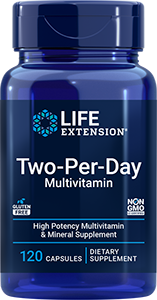Magnesium

Are People getting enough Magnesium?
By Strength Tree
Magnesium is an trace mineral that is necessary for proper muscle function, healthy bones and a healthy heart. According to the Journal of the American Medical Association, as many as 68% of Americans are deficient in magnesium, but this deficiency is hard to detect.
Very little magnesium is stored in the blood, so blood tests are not a reliable means for detection. Magnesium deficiency is usually detected by analyzing a patient's symptoms and diet.
Symptoms of Magnesium Deficiency
The early symptoms of magnesium deficiency are often muscular in nature. Patients may suffer from muscle cramps or twitches. Some report overall feelings of weakness and fatigue. As deficiency becomes more severe, it may result
- abnormal heart rhythms
- muscle spasms
- numbness in the extremities and changes in personality.
- poor bowel movements.
In severe cases, magnesium deficiencies can lead to seizures, vomiting and panic attacks, along with blurry vision, extreme thirst and unexplained weight loss. Women with magnesium deficiencies often experience menstrual cramps and anxiety.
Products
Diagnosing Magnesium Deficiency
Since there is no precise test for magnesium deficiency, doctors often diagnose the condition by eliminating other potential causes for a patient's set of symptoms. Medical tests are used to rule out other possible causes, such as epilepsy or diabetes. If magnesium deficiency is suspected, a patient may be asked to keep a food diary for several days. A food diary that demonstrates low magnesium intake suggests magnesium deficiency is likely.
Treating Magnesium Deficiency
Once magnesium deficiency is identified as a likely cause of a patient's symptoms, treatment is quite straight-forward. Patients are instructed to increase their intake of magnesium by including magnesium-rich foods, such as pumpkin seeds, black beans, spinach and flaxseed, in their diets.
Other magnesium-rich foods include brown rice, dark chocolate, kidney beans, broccoli and almonds. Patients who are not able or willing to eat these foods can take oral magnesium supplements to boost their levels of this vital mineral.
In addition to increasing magnesium intake, patients with magnesium deficiency are also advised to take probiotic supplements or begin eating yogurt regularly. These practices increase the levels of helpful bacteria in the intestines, which helps the body absorb more magnesium.
Magnesium Benefits
Magnesium can help with the following:
- Calcium Absorption
- Healthy Bones
- Diabetes
- Cardiovascular system
- Migraine Headaches
- Constipation
- Premenstrual syndrome
- Anxiety
Magnesium Supplements
If you can't get all of your magnesium through food try taking a supplement that is more a blend or Magnesium complex which would include Oxide, Citrate, Malate, Fumarate, Succinate and Glutamate because its easily absorbed by the body.
Magnesium Dosage
Recommended Daily Allowances (RDA):
- Adult males are 400-420 mg
- Adult Females 310-320 mg
- Pregnant Females 350-400 mg
- Breastfeeding Females 310-360 mg
From Office of Dietary Supplements (ODS) at National Institute of Health (NIH).
Conclusion
Certain patients, including those with celiac disease and other digestive irregularities, are at an increased risk of magnesium deficiency. Those who primarily eat foods grown in magnesium-deficient soils are also at risk.
By watching for the symptoms described above and including more magnesium-rich foods in the diet, patients can prevent magnesium deficiency before it becomes a severe medical problem.



